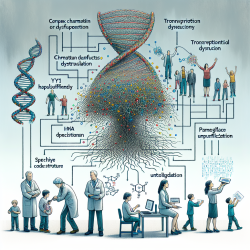Speech and language services play a crucial role in the development and education of students. In New Jersey, these services are designed to support students in overcoming various communication challenges. Let's dive into what speech and language services entail and how they can benefit students in school settings.
What is Speech?
Speech refers to the expressive output of language - specifically, the formulation of words (or sign language), within the areas of articulation, voice, and fluency. Use of articulators requires integration of fine motor skills, including the mouth, lips, and tongue. When using sign language, articulation still involves fine motor activities, but the focus shifts to the movement of the hands, eyes, and fingers. Voice involves the vocal folds and tract, as well as breath support, while fluency refers to the flow and timing of speech.
Understanding Language
Language encompasses the meaning behind speech sounds, sign language, and written language to convey a message. Speech Language Pathologists (SLPs) work within the five domains of language to make evidence-based decisions regarding speech and language services. These domains include:
- Phonology: The study of individual sounds.
- Morphology: Focuses on units of language carrying meaning.
- Syntax: Defined as sentence structure.
- Semantics: The rule-governing facet of language.
- Pragmatics: The use of language, including body language and social elements.
Responsibilities of Speech Language Pathologists (SLPs)
SLPs have a broad range of responsibilities, including prevention, assessment, diagnosis, and treatment of speech and language disorders. Within school settings, their primary focus is on communication, which refers to the receptive and expressive components that help us interact within our environments, with ourselves, and with others.
Language and Speech Disorders
Individuals may face difficulties with speech and/or language. A receptive language disorder refers to difficulty understanding the input received from the environment, such as hearing and processing a message or "reading" sign language in real time. An expressive language disorder is defined as difficulty conveying thoughts, ideas, and feelings. Difficulties can arise within both receptive and expressive realms, often leading to frustration when messages cannot be understood or conveyed clearly. SLPs can provide crucial assistance in these areas.
New Jersey Code Regulation
The New Jersey Code Regulation provides guidelines for speech-language services in schools:
- Section 6A:14-3.6: Determination of eligibility for speech-language services.
- Section 6A:14-4.4: Program criteria for speech-language services.
- Sections 6A:14-5.1 and 5.2: Providing educational and related services.
For more information, please follow this link.










